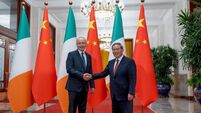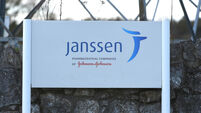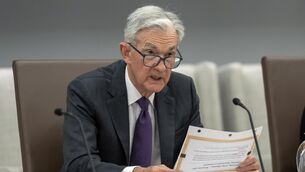Time to belt up for the bumpy ride ahead
For most of his regime, the Irish economy operated in a benign global environment and was given a huge boost by a housing boom driven by inordinately cheap credit and some dubious tax reliefs.
Across the water in Britain, the former Prime Minister Tony Blair, was a similarly lucky general. He presided over a period of unprecedented economic and financial stability and his economic legacy is strong.
Unfortunately, both their successors do not appear to be as lucky. Gordon Brown has struggled somewhat since his thirst for power was satisfied last summer, and he is presiding over an economy that is starting to struggle badly, a fact highlighted by some pretty dreadful housing data this week. Brian Cowen faces similar challenges here. It looks certain that the earlier part of his reign at least will endure choppier economic waters than we have experienced for quite some time.
In Irish public debate there now appears to be a marked unwillingness to face up to the reality that we have issues. We are constantly hearing spokespeople from official Ireland telling us we should not be talking ourselves into a recession and there is certainly a tendency to shoot the messenger.
This tendency is not good for any of us because it would be dangerous to ignore the realities that are at play in global and domestic economies.
This week the International Monetary Fund (IMF) provided a pretty downbeat assessment of the global economy and has placed a 25% probability on global recession this year and next.
The reason this probability is relatively low is because emerging economies such as China and India are still showing solid momentum and will be the saviours of the global economy this year and next. China is forecast to grow by 9.3% this year and 9.5% the next, while India is expected to grow by 7.9% this year and 8% in 2009. Clearly the balance of global economic power continues to shift towards the emerging world.
On the US economy, the IMF is downbeat. It believes the economy is in recession and is forecast to expand by just 0.5% this year and 0.6% the next. Such a performance would be a dismal outcome for the US and suggests a sharp rise in unemployment and economic pain.
However, a prolonged period of under-performance might just be what the doctor ordered to rid the US of its economic and financial imbalances. Low growth would deliver low interest rates and a weaker dollar.
In recognition of the serious difficulties now besetting the global economic and financial system the IMF has been quite up front in its call for significantly lower interest rates, tax cuts, public spending increases, and the bailing out of ailing financial institutions. Such a policy call from the IMF is quite dramatic and a clear recognition of just how seriously it views the risks.
For Ireland, this will obviously present a difficult backdrop, now compounded by other developments.
On Wednesday alone we saw sterling go over 80 pence against the euro and oil prices going over $112 a barrel. For Irish business the price of oil is not good news, but the real pressure is now on Irish companies trying to sell into a slowing British market at such uncompetitive exchange rates.
In relation to the economy, Mr Cowen is not going to get things all his own way and we can be sure that over the coming months we will see further shocking news of the type provided by the March live register.
Fasten the safety belts and prepare for a bumpy ride and be realistic about what is really going on. Please leave the messengers alone.
Jim Power,
chief economist,
Friends First













